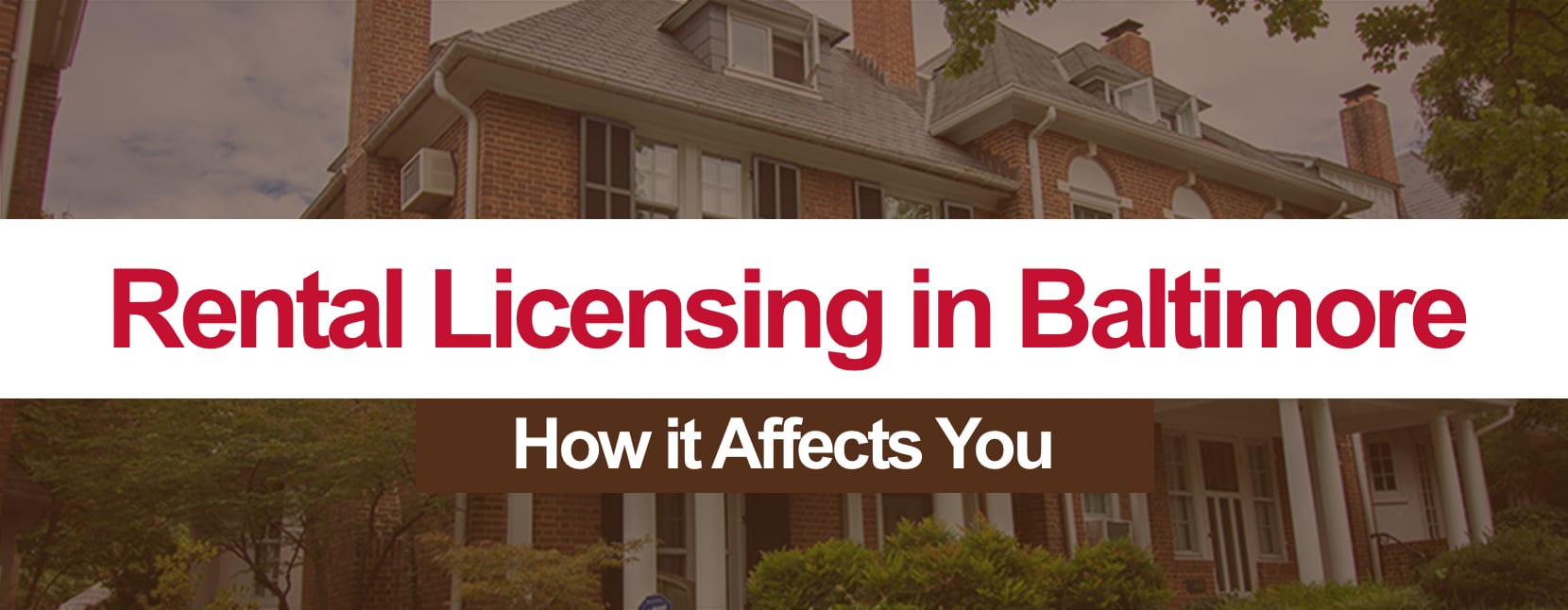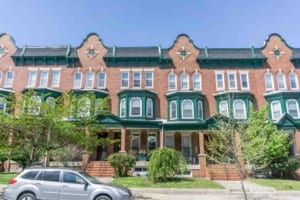
Every single-family and 2-unit rental property in Baltimore City will have to be inspected by a private third-party home inspector before December 31, 2018 under legislation set to be voted on April 16. Buildings with more than 2 units used to be inspected annually by Baltimore City Housing Inspectors at no cost to the landlord. Under the new law, these buildings will need to be inspected by private third-party home inspectors. For single-family houses and buildings up to 9 apartments, all units must be inspected. For buildings with more than 9 apartments; a representative sampling of units (the actual number to be determined by the Housing Commissioner) will need to be inspected. The landlord, of course, has to pay the cost of the inspection. The City will accept the annual HQS (Housing Quality Standards) Inspection Report, instead of a third-party private home inspector, for those housing providers who are subject to annual inspections under the Housing Choice Voucher (Section 8) Program.

How Will This Effect Your Property Management?
The new system does not eliminate the annual registration fee (which remains unchanged at $30 per dwelling unit for one-family and two-family houses, and $35 per dwelling unit for buildings with more than 2 units). The new system differentiates “registration”, which is done annually, and “licensing”. The “License” will last 3 years for “good” landlords; defined as one who gets violation notices corrected within 60 days of their issuance. The License will last 2 years if the landlord gets violation notices corrected within 90 days of their issuance. Landlords are “bad” if they take more than 90 days to correct housing, building, and fire code violations and, therefore, must get their units inspected every year. “Bad” landlords on one-year licenses must pay an additional $15 per unit registration fee. The system is designed to reward “good” landlords who keep their properties in good repair and respond promptly to violation notices.
Working To Improve The Community
The Board of Realtors and the Maryland Multi-Housing Association have been working closely with the Mayor and City Council towards a system that is workable and meets the needs of our community. Some changes suggested by our industry have been adopted, while others have not.
The new law gives the Housing Commissioner the power to revoke, suspend, or deny a rental license if the property is determined to be a “nuisance property”; one where drug or other illegal activity happens or if the property is used for “unruly social gatherings” (i.e. college parties).
The Housing Commission is authorized to design the inspection form that will be signed by the Home Inspector and establish the criteria of specific items the Home Inspector will be checking. The Housing Commissioner has not indicated how extensive or restrictive the inspection criteria will be.
The Home Inspector
Baltimore City inspections must completed by a licensed Home Inspector. The Maryland Department of Labor and Licensing and Regulation (DLLR) is responsible for licensing, disciplining, and setting the educational and code of conduct standards for Home Inspectors. In addition to State regulation, the Home Inspector will need to register with the Housing Commission and sign a Financial Disclosure Statement with the Housing Commissioner before the Inspector is authorized to complete rental property inspections in Baltimore City.
Inspection certificates and license applications must be submitted to the Baltimore Housing office between September 2 and December 31. Inspection certificates cannot be more than 30 days old for 1-family and 2-family buildings and not more than 90 days old for buildings with 3 or more apartments.
The License is required to be placed in a conspicuous place within each rental unit, or in the vestibule, lobby or other common space for multi-family properties.
The landlord is required to prepare a Sanitation Guide explaining the requirements and procedures for the separation, disposal, collection, and proper storage pending collection, of recycled material, yard waste, bulk trash, and all other forms of garbage, rubbish, waste and trash. This Guide must be provided to each dwelling unit and prominently posted within each common collection room (if any) on the premises.
Housing Commissioner Responsibilities
The Housing Commissioner is required to audit inspection reports and inspection certificates. The City contemplates current housing inspectors spending more time auditing inspectors and responding to complaints, and less time directly inspecting properties.
The new law requires the Housing Commissioner to establish a website where the public can access (a) the license status of any rental dwelling, (b) violations, notices, or orders issued by the City, and (c) notices of any proposed denial, suspension, or revocation of a rental dwelling’s license.
The fine for failing to register a non-owner occupied dwelling unit is $100. The fine for failing to obtain a license, or for having a “nuisance” on the property, is $1,000. Each day that a violation continues is a separate offense subject to additional fines.
Below is a link to the text of the latest version of the bill and a link where you can enter the address of your property and find the contact information for the City Councilperson who represents the area in which your building is located. You are encouraged to contact your City Council Representative or the Housing Department at 410-396-4140 to express your opinion, support, or concern about this proposed legislation.
Click Here to Download the Text of the Latest Version of the Bill
Click Here to Find the City Council Person representing the area where your property is located.

